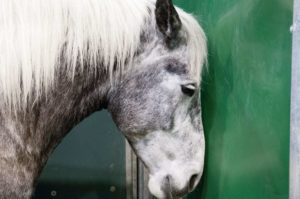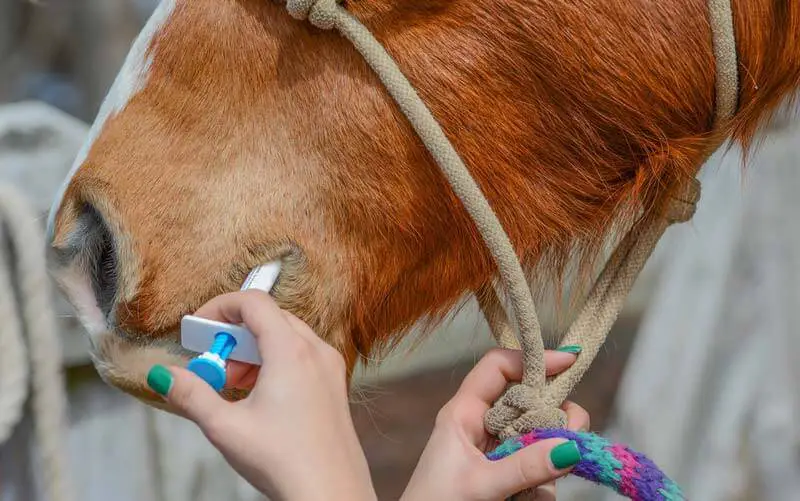
An acute and highly contagious viral disease, Equine Influenza left its mark on the Australian horse industry during a major outbreak in 2007-2008. In this article, we discuss the importance of vaccinating your horse against Equine Influenza.
Caused by strains of the influenza virus type A, Equine Influenza results in a severe upper respiratory tract infection that can rapidly spread from horse to horse.
Shown to have a 100% infection rate in unvaccinated horses exposed to the disease, vaccination remains the only protection for your horse. While an earlier subtype of the virus – known as A1 (H7N7) – is now believed to be eradicated, the current subtype A2 (H3N8) still requires vaccination.
Signs of Equine Influenza
With a very short incubation period of just one to three days, the clinical signs of Equine Influenza can become apparent in three to five days following exposure.
However, veterinary diagnosis is essential to rule out other common upper respiratory tract infections, as Equine Influenza may be mistaken for Equine Herpes Virus, Rhinovirus, Strangles, Equine Viral Arteritis and a number of other conditions.
The most common symptoms of Equine Influenza include:
- Sudden onset of fever
- Coughing
- Nasal discharge
- Swelling of the submandibular lymph nodes
- Depression
- Loss of appetite
- Laboured breathing
- Muscle pain and/or stiffness
In some cases, the infected horse’s limbs and trunk may swell. This symptom is known as Epizootic Cellulitis. In addition, some horses may develop a secondary bacterial infection, including Bacterial Pneumonia, which can prove fatal if left untreated.
Treating Equine Influenza
Being a virus, there is no known cure for Equine Influenza. As such, treatment usually involves:
- Strict quarantine
- Administration of non-steroidal anti-inflammatory drugs
Equine Influenza can be easily transferred to other horses via human skin, hair, clothing and shoes, along with equipment and vehicles. As such, containment also involves rigorous hygiene to prevent its spread.
Rest is imperative for any infected horse to overcome the disease. As a general rule of thumb, the horse should rest one week for each day of fever. Training should not resume until the horse’s symptoms, including coughing, have completely subsided.
Preventing Equine Influenza
Vaccination is available for Equine Influenza but not in Australia. It is a major problem in the United States of America and Europe, but we have managed to avoid the recurrence of Equine Influenza and therefore don’t vaccinate.



